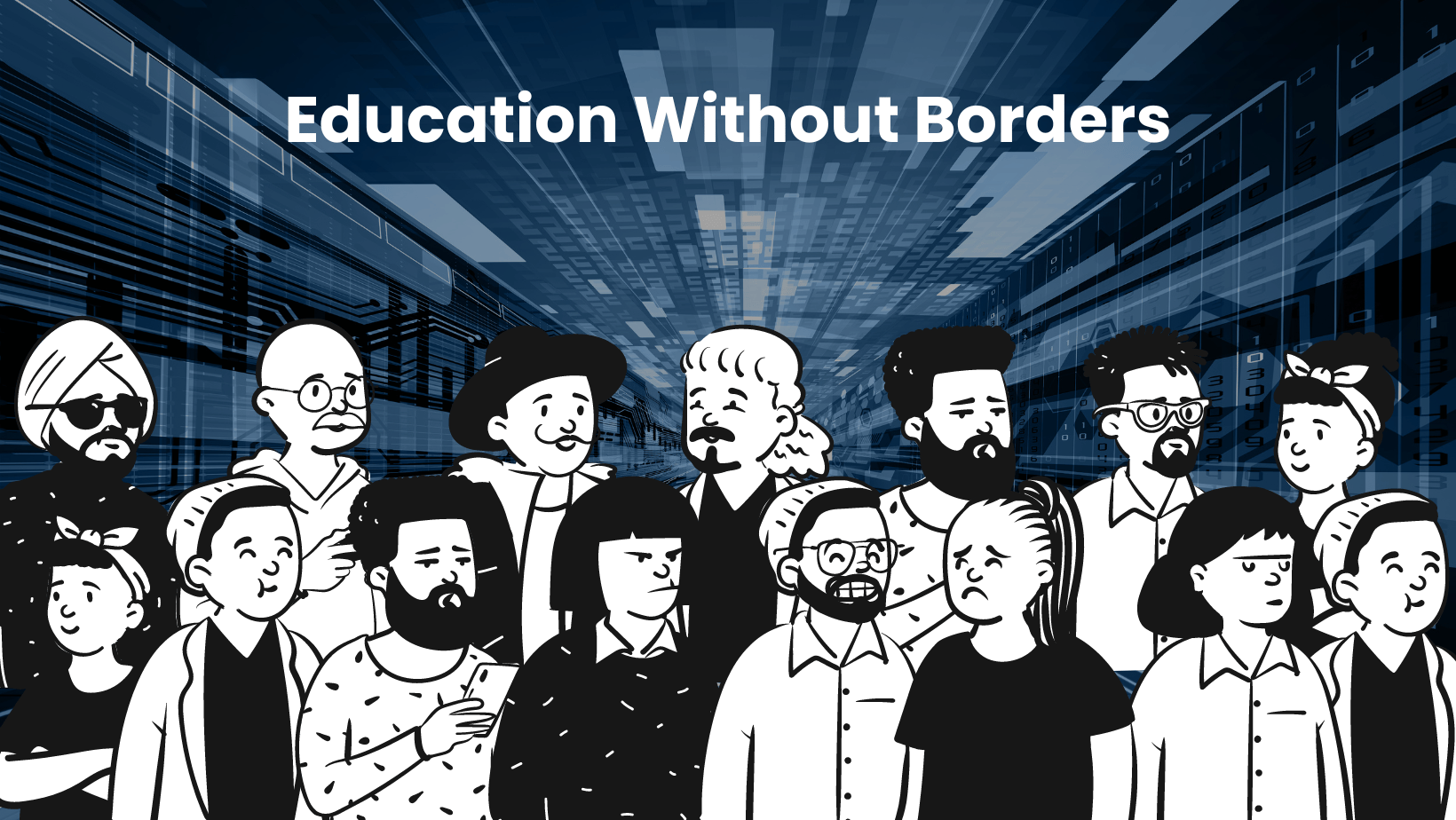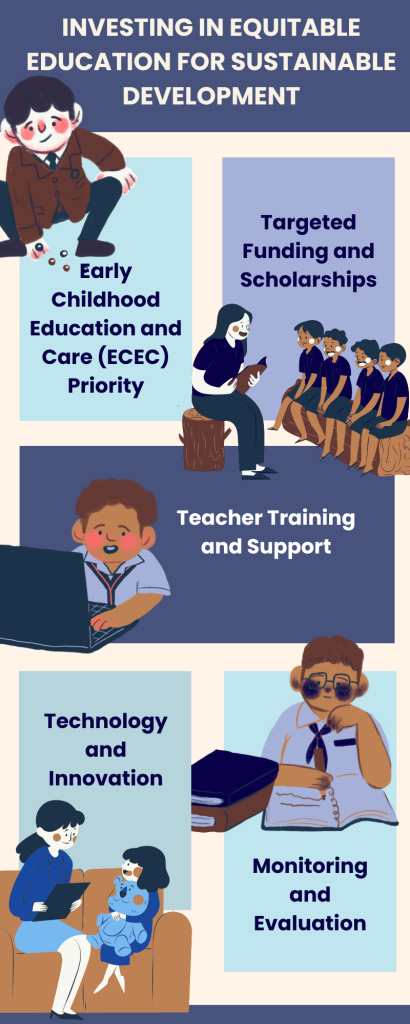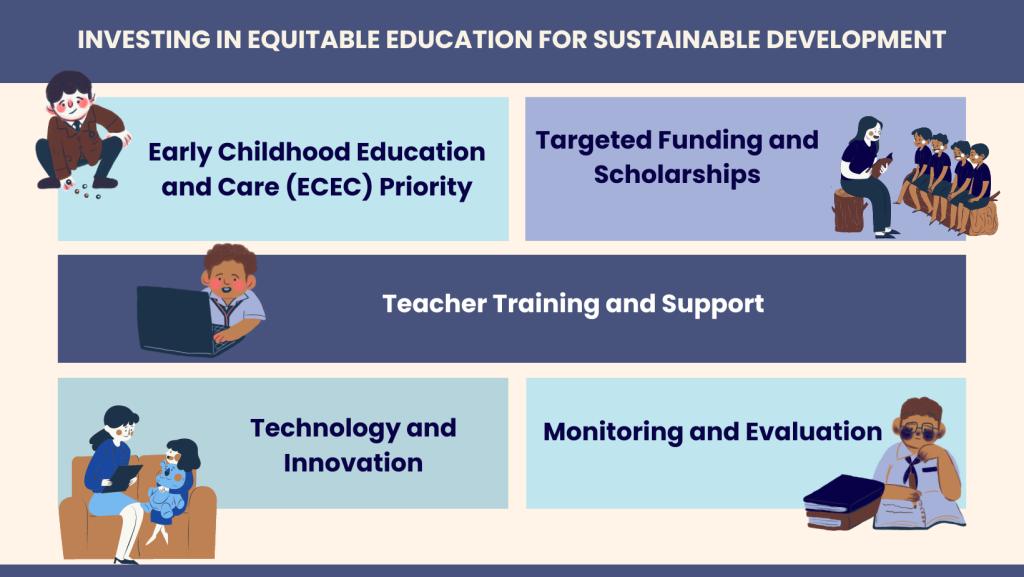
30 Jan Education Without Borders: Can Online Learning Democratize Education and Reduce Inequality?
Globally, 17 % of children and youth are out of school and the figure is substantially higher in developing countries. While education is a priority and a fundamental human right for all, access to quality education is not a reality for many due to different challenges like financial, geographical, or socio-economic barriers.
Online learning is one of the most effective ways to bridge the gap in access to quality education as it operates across geographical and financial barriers, empowering individuals of all backgrounds to access quality education, break the cycle of inequality, and shape their own futures. It helps create customized learning, flexibility, and the potential to revolutionize how we learn, who learns, and what it means to be educated in a globalized world that has access to information at their fingertips.

The traditional concept of education confined within physical borders has been challenged by the limitless possibilities of online learning with an increasing number of people participating in the process. Digital platforms and resources are pushing the frontiers of accessibility, offering quality education to children and adults regardless of location, economic background, or other limitations. This has created a significant opportunity to democratize education and bridge the inequality gap that has affected traditional learning systems for generations. According to a 2020 UNESCO report, over 1.5 billion students worldwide were impacted by school closures due to the COVID-19 pandemic. Online learning plays a crucial role in mitigating educational disruption, particularly in developing countries.


Innovative Approaches to Education:
- Adaptive learning platforms
Adaptive learning platforms like Whatfix, EdApp and Knewton use algorithms to personalize learning for every student. They customize the level of difficulty and speed of instruction according to individual needs, adjusting their services accordingly. The personalized nature of adaptive learning platforms allows students to receive tailored content and support, based on their individual needs. This ensures that an individual has sound knowledge of the concepts before moving on, effectively catering to diverse learning styles and abilities. This, in turn, contributes to a more dynamic and effective learning experience.
- AI driven learning
AI–driven eLearning platforms such as Zavvy and Smart Sparrow employ artificial intelligence to create personalized learning pathways for people. It adapts to individual student responses, offering a tailored educational experience for every learner. The impact of AI-powered adaptive learning is profound; it has been redefining the educational landscape for both students and educators. It has helped to increase student engagement and build higher retention rates, leading to improved academic performance.
- Microlearning
Targeted learning modules delivered through mobile applications make education accessible on the go, particularly for people balancing work and family commitments. Platforms like Duolingo simplify language learning making it convenient and engaging to individuals with busy schedules. Organizations also use such platforms to train their employees on topics ranging from product training to skills development. Microlearning enables organizations to deliver engaging and practical content, leading to better knowledge retention and increased productivity of their human resources.
- Gamification
Gamification, in layman’s terms, is the application of game mechanics like points, badges, levels, and leaderboards to non-game environments. It has helped to convert standard learning experiences into engaging and pleasurable practice, catching students’ attention and inspiring active engagement. CodeCombat’s interactive learning games make complex subjects more engaging and accessible to younger learners. This has increased motivation and promoted critical thinking and problem-solving abilities.
While online learning presents immense potential, challenges persist. Inequalities exist due to gaps in digital connectivity, a lack of device access, and inadequate digital literacy abilities. Ensuring equitable access to technology and infrastructure is crucial for online learning to truly democratize education. Online learning is a powerful tool for democratizing education and reducing inequality. At Frost and Sullivan Institute, we believe that by harnessing its potential and addressing the associated challenges, we can work towards a future where quality education is truly accessible to all, regardless of background or circumstance.
Blog by Shreya Ghimire,
Research Analyst, Frost & Sullivan Institute


Sorry, the comment form is closed at this time.